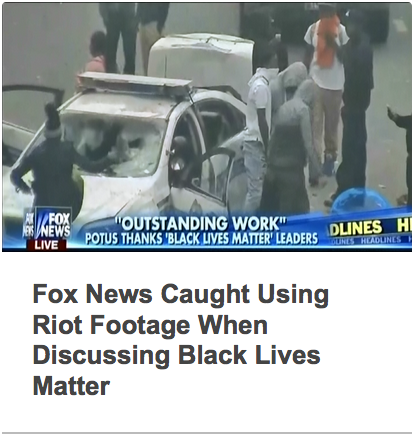
Snapshot of Media Matters' website
On February 17, 2016, Media Matters for America and the Advancement Project hosted a panel in Washington, D.C. on how the media contributes to the criminalization of people of color. Panelists included Danielle Belton (TheRoot.com), Judith Brown Dianis (Advancement Project), Cristina Lopez, (Media Matters for America), and Mervyn Mercano (Blackbird). The following blog post is in response to that panel.
As we know, perpetuations of stereotypes have a lasting impression on our psyche. The media’s constant portrayal of Latinos being “illegal,” African Americans as “thugs,” the overstatement of Asian success that does not address systemic issues, and Native Americans marginalized to the point of being invisible, has contributed to a largely racially motivated media agenda. This agenda distributed across the airwaves of mass media has led to furthering the systemic oppression of marginalized people of color here within the United States.
In the late 1990s, John Dilulio, alongside other criminologists, constructed the “Superpredator” theory. Dilulio believed we were experiencing a wave of “elementary school youngsters who pack guns instead of lunches" and youth whom were also "fatherless, Godless, and jobless." Dilulio’s false claims of impending violence and dissemination of those claims ultimately shifted the construction of federal policies that contributed to the “School-to-Prison Pipeline” and the increase in mass incarceration around the country, especially in urban communities. The media also slowly started moving away from referring to young adolescents as “children,” but instead as “juveniles” in order to perpetuate the narrative of “superpredators.”
“Who gets the right to a childhood?” Why was 12-year-old Tamir Rice referred to as a grown man after being mercilessly shot by police officers? Or a 14-year-old girl in McKinney, Texas violently thrown to the grown while in handcuffs when she asked for her mother? The media’s portrayal of youth of color being vicious and troublemakers is created also in part to the lack of newsroom diversity. With only 12% of the individuals working in the media being people of color, people of color have decided to use social media to expand their reach and relaying their messages unapologetically to the masses through hashtags such as: #SayHerName, highlighting the women who have been the victims of police brutality, and #AskMeMore, the Latino twitterstorm emphasizing to the news media that immigration isn't the only issue of importance and the need to diversify news media. These movements have continued to build thanks to organizers and activists. Media matters because the outcome and expectation of how we report news must be shifted to fit a broader narrative and be inclusive of all.



The views and opinions expressed in this post are those of the author(s) and do not necessarily reflect those of MomsRising.org.
MomsRising.org strongly encourages our readers to post comments in response to blog posts. We value diversity of opinions and perspectives. Our goals for this space are to be educational, thought-provoking, and respectful. So we actively moderate comments and we reserve the right to edit or remove comments that undermine these goals. Thanks!